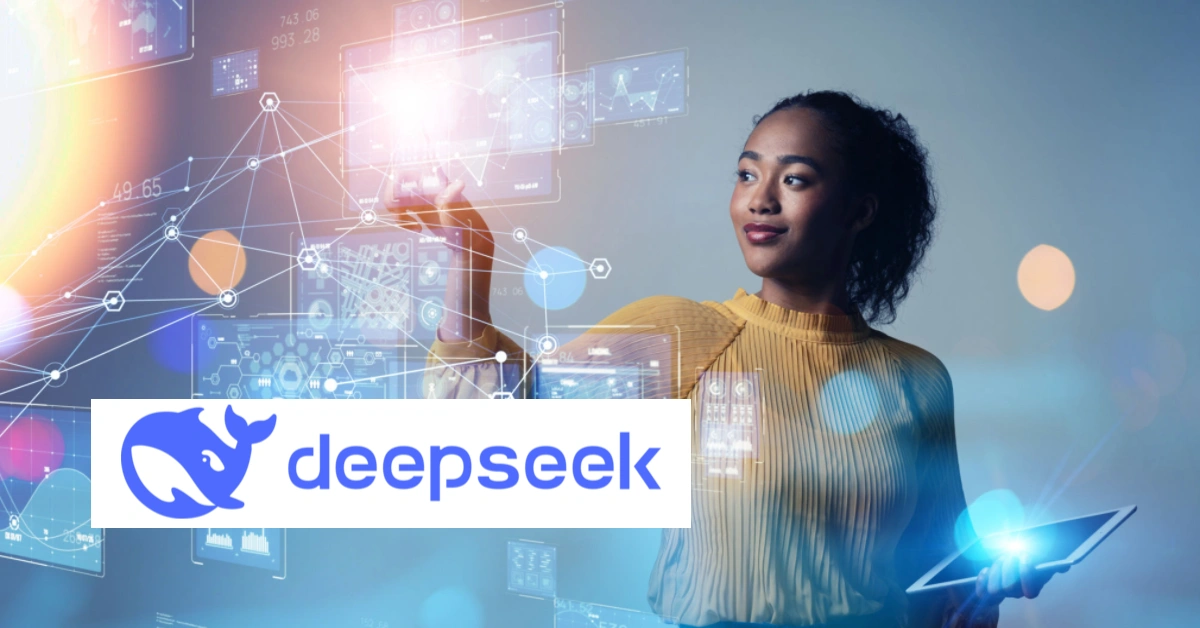China’s DeepSeek has emerged as a major player in the artificial intelligence (AI) landscape, shaking up the industry with cost-efficient, high-performance AI models that rival the best from the U.S. With the launch of DeepSeek-V3 and DeepSeek-R1, the startup is proving that Chinese AI companies are closing the gap with Silicon Valley giants.
Table of Contents
DeepSeek’s breakthrough has drawn global attention, with its AI assistant surpassing OpenAI’s ChatGPT as the top-rated free app on Apple’s U.S. App Store. The company’s ability to develop industry-leading AI models at a fraction of the cost has raised questions about the massive investments made by U.S. tech firms and even impacted major tech stocks, including Nvidia.
Let’s explore what makes DeepSeek a game-changer in the AI sector.
Why is DeepSeek Disrupting the AI Market?
The launch of ChatGPT in late 2022 triggered a race among Chinese tech firms to develop their own AI chatbots. However, early efforts—such as Baidu’s Ernie Bot—fell short of expectations, highlighting a gap in capabilities between U.S. and Chinese AI firms.
DeepSeek has flipped the narrative, delivering AI models that are not only on par with OpenAI and Meta’s models but also significantly cheaper to operate.
Key Factors Behind DeepSeek’s Success
✔ Cost-Effective AI Development – DeepSeek claims to have trained its V3 model using less than $6 million worth of computing power on Nvidia H800 chips, a fraction of the billions spent by U.S. AI giants.
✔ Superior AI Performance – DeepSeek-V3 and DeepSeek-R1 have been praised by Silicon Valley executives and U.S. tech engineers for their advanced capabilities.
✔ Unmatched Affordability – The DeepSeek-R1 model is reported to be 20 to 50 times cheaper to use than OpenAI’s o1 model, making it highly attractive for businesses.
✔ AI Assistant Popularity – DeepSeek’s AI-powered assistant app has overtaken ChatGPT as the most downloaded free app on Apple’s U.S. App Store, indicating widespread user adoption.
Beyond AI Hype: Three Strategic Steps to Transform Accounting Firms with Practical AI Integration
Is DeepSeek’s AI Story Too Good to Be True?
While DeepSeek’s achievements have impressed many, some experts remain skeptical about its claims.
🔹 Training Cost Discrepancies – DeepSeek says it trained V3 for under $6 million, but analysts believe total costs were much higher and that the costs for the R1 model remain undisclosed.
🔹 Nvidia Chip Controversy – Alexandr Wang, CEO of Scale AI, alleged that DeepSeek possesses 50,000 Nvidia H100 chips, which Washington has banned from being sold to Chinese firms. If true, this could violate U.S. export controls. DeepSeek has not responded to these claims.
🔹 Unclear Investment Sources – The total investment in DeepSeek is unknown, and some believe it has received government-backed support due to its alignment with Beijing’s AI ambitions.
Who is Behind DeepSeek?
DeepSeek is based in Hangzhou, China, and is controlled by Liang Wenfeng, co-founder of the quantitative hedge fund High-Flyer.
High-Flyer announced in 2023 that it was shifting its focus from trading to AI research, leading to DeepSeek’s creation.
DeepSeek’s Key Connections
✔ High-Flyer’s AI Expertise – The firm owns a 10,000-unit cluster of Nvidia A100 chips, which could have been used for DeepSeek’s early AI training.
✔ Patent Ownership – High-Flyer holds patents related to AI chip clusters, further strengthening its AI research capabilities.
✔ Ties to China’s Leadership – DeepSeek founder Liang attended a closed-door symposium with Chinese Premier Li Qiang on the same day DeepSeek-R1 launched, indicating high-level government interest in the company’s success.
How Does Beijing View DeepSeek’s Success?
DeepSeek’s rise aligns with China’s goal of achieving AI self-sufficiency despite U.S. sanctions on advanced chips.
- The Chinese government sees AI as a strategic industry and is actively pushing domestic firms to develop cutting-edge models.
- DeepSeek’s achievements are seen as a breakthrough in China’s AI capabilities, potentially reducing reliance on U.S. technology.
- Last year’s symposium with China’s leadership included Baidu CEO Robin Li, highlighting that DeepSeek could be positioned as a national AI champion in the future.
What’s Next for DeepSeek?
As DeepSeek continues to make headlines, the global AI industry is closely watching its next moves.
✔ Expanding AI Model Capabilities – DeepSeek may challenge OpenAI and Google with new, more powerful models.
✔ Navigating U.S. Sanctions – Allegations about access to banned Nvidia chips could lead to further scrutiny.
✔ Potential Government Backing – China may increase support for DeepSeek to counteract U.S. export restrictions.
✔ Global AI Market Impact – The low-cost, high-performance AI models from DeepSeek could reshape the AI economy, forcing competitors to rethink their pricing and development strategies.
Conclusion: A Major Shift in AI Power?
DeepSeek has proven that China can compete with U.S. AI giants in terms of performance and cost-effectiveness. With an AI assistant that has surpassed ChatGPT on the App Store and cutting-edge models that rival OpenAI and Meta, DeepSeek is forcing the world to take notice.
However, questions remain about its true costs, funding sources, and compliance with U.S. tech export restrictions. As the AI race heats up, DeepSeek’s rise could mark a turning point in the global AI industry—potentially challenging Silicon Valley’s long-standing dominance.
🔹 Will DeepSeek become China’s answer to OpenAI, or is there more to the story? Stay tuned as the battle for AI supremacy unfolds.

One thought on “DeepSeek: The Chinese AI Startup Disrupting the Global AI Industry”